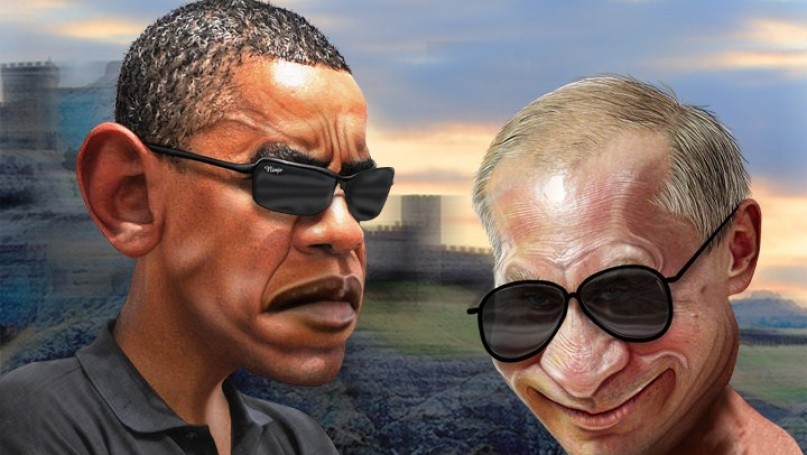
Putin’s seizure of the Crimea is apparently quite popular in Russia, a nation still feeling humiliated by the Cold War’s loss. No matter that the Crimea was already the site of a major Russian naval base and dominated by ethnic Russians though formally part of an independent Ukraine. The land grab was met by fireworks in Moscow, muted fears on Russia’s borders, some grumbling in the EU, lectures and the imposition of minor sanctions from the United States, a humorous story on the Onion website about surplus G-8 Summer Getaway T shirts, and little else. Putin is portrayed in the West as a strongman who outsmarted and outmaneuvered a naïve President Obama.
President Obama may be naïve, and Putin may be a tough guy who knows both the West’s weaknesses and Russia’s need for glory, but Putin has made a serious mistake in seizing the Crimea. Putin ignores the impact of Russia’s action on America’s domestic politics. This relatively minor step—taking back territory that was basically Russian to begin with—has recreated Russia’s Cold War global enemy status in American politics and allowed Obama to cast by Republicans as weak on defense. During the latter half of the Cold War, it was hard for Democrats to be elected president because they had become weak on defense in the eyes of the public. Security strength was the club with which Republicans beat up Democrats in national elections. Even after the Cold War, when it safe again to elect Democrats, Democrat Presidents nearly always chose Republicans as their Secretaries of Defense, sort of a required political insurance policy. Look at Obama’s choices—Robert Gates, a Republican bureaucrat and staffer, Leon Penetta, once a Republican staffer, and Chuck Hagel, a former Republican Senator. By making a Democrat look weak on security issue, Putin has given the Republicans back the club they lost in Iraq and when Obama killed Osama bin Laden.
Russia as a threat gives life to the security issue in American politics. The declines in the American defense budget will likely come to an end, if not be thrown into reverse. Isolationist tendencies, though growing rapidly with the frustrations of nation building efforts in Iraq and Afghanistan, will likely moderate enough to accommodate a global containment of Russia’s interests. Candidates in both major parties, but most especially Democrats, will be careful not to seem to side with Russia in any way. Hillary Clinton will become known as a foreign policy/defense hawk. There will be a reset of US/Russian relations and the symbolic button will be blinking red.
As President Obama said, Russia is a nation in decline—its action a sign of weakness, not strength. It may seek glory by bringing back confrontation with the United States. A second Cold War, however, is likely to end for Russia just like the first if not worse. Many in the United States were willing to forget the Cold War and designate Russia as a partner. That can’t be the case anymore. American domestic politics will not permit it.
Further Reading on E-International Relations
- Ukraine and the Russian Challenge to the European Order
- Opinion – The West’s Mental Lockdown over Putin’s Invasion of Ukraine
- Opinion – On 9 May Putin’s Russia Will Glorify War and Stalin
- Vladimir Putin’s Imperialism and Military Goals Against Ukraine
- The Trojan War in Crimea
- Opinion – A Psychological Perspective on Putin’s War with Ukraine